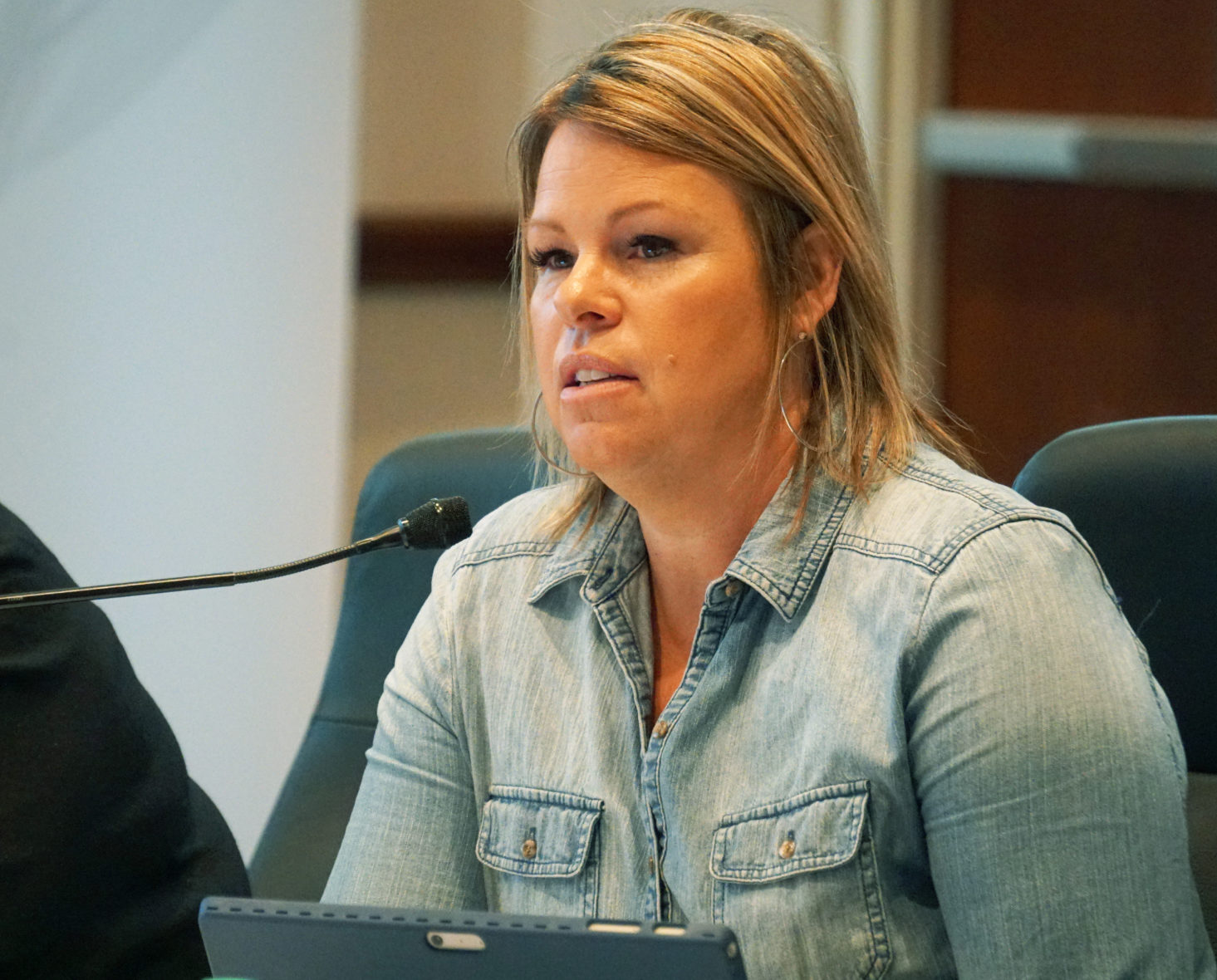The University of Idaho is banking on an increase in taxpayer-funded student scholarships — putting up its own money in the process.
The U of I is sending 500 letters to potential first-year students who appear likely to receive a state-funded Opportunity Scholarship. If the state scholarships do not materialize for 2019, the U of I will cover the difference for one year.
“We’re taking a financial risk here,” outgoing U of I President Chuck Staben told the Legislature’s Joint Finance-Appropriations Committee Wednesday morning.
The magnitude of that risk could vary, depending on how much money the Legislature folds into the Opportunity Scholarship. The need- and merit-based scholarship, available to Idaho students who attend college in-state, tops out at $3,500 per year over four years. That translates to a maximum of $1.75 million for 500 students.
Clearly, U of I officials are hoping they won’t have to put up their own scholarship dollars. In his fifth and final presentation to JFAC, Staben urged budget-writers to fund Gov. Brad Little’s proposal to put an additional $7 million into the Opportunity Scholarship — a request that would help incoming students at the U of I and across the higher education system.
Even if the Legislature funds only half of Little’s request, that should be enough to cover the 500 new scholarships, Staben told the Senate Education Committee Wednesday afternoon. If lawmakers reject the requested increase and freeze the state scholarship budget, Staben said, the university might have to pick up about a balance of about $500,000.
Legislators have more than doubled their investment in the Opportunity Scholarship program over the past three years. The current budget is $13.5 million, but that still isn’t enough to meet demand. Nearly 1,800 eligible students were shut out of the scholarship last year, due to a lack of state funding.
About 300 first-year U of I students receive an Opportunity Scholarship, and roughly the same number of eligible students miss out, Staben said Wednesday.
While the state has put more money into scholarships, the U of I is stepping up its efforts.
The U of I is also reaching out to major donors, seeking a five-year, $5,000-a-year commitment for student aid. The sum is not coincidental: U of I students who qualify for federal Pell grants still have $5,000 a year in unmet need. The U of I launched this fundraising drive recently, and has already secured about two dozen pledges. “So far it’s been an incredibly powerful approach,” Staben said.
The U of I awarded more than $25 million of its own scholarships this year, to about 6,000 students.
Staben will step down this spring, and Wednesday’s JFAC presentation had overtones of a farewell appearance. Several budget-writers thanked Staben for his service. Rep. Wendy Horman, R-Idaho Falls, praised Staben for launching the direct admissions program, which essentially pre-approves qualified high school seniors to some or all of the state’s colleges and universities. The program grew from Staben’s own experience, Horman noted, after the president went online and tried to navigate the state’s applications website.
Budget-writers asked Staben for a few parting observations.
Dual credit. Idaho’s rapidly growing advanced opportunities program doesn’t appear to be having a profound effect on college enrollment, Staben said. Many high school students who take a full load of taxpayer-funded college courses are probably college-bound in the first place. But once they get to college, they have a better chance to explore a double major or a year of overseas study. “It has been an enriching experience for those students, I believe.”
Outcomes-based funding. Staben pointed out that the state’s college and university presidents supported the $16 million State Board of Education proposal, which would tie dollars to graduating students on time, serving at-risk students or other metrics. The proposal basically provides incentives for things the colleges and universities are already trying to do, he said. But the move could have a side effect: It could eliminate enrollment caps that encourage colleges and universities to serve Idaho students first.
Little wants to spend the next year studying this issue.
Staben’s presentation highlighted the third day of “Education Week,” as JFAC works its way through the K-12 and higher education budget requests that comprise more than 60 percent of state spending. The committee will hear from state superintendent Sherri Ybarra Thursday, and interim Boise State University President Martin Schimpf Friday.
State Board appointment
In other Statehouse action Wednesday, Senate Education wasted no time advancing the reappointment of Debbie Critchfield to the State Board.
Without any debate or dissent, senators voted unanimously to approve Critchfield’s appointment and send her confirmation to the Senate floor.

Critchfield serves as the State Board’s vice president. She is a former Cassia County school board member and works as a public information officer for the Cassia district.
Former Gov. Butch Otter originally appointed Critchfield to the State Board in July 2014 to fill the unexpired term of former State Board member Ken Edmunds.
Otter reappointed Critchfield to a five-year term last June. In announcing Critchfield’s reappointment last year, Otter said Critchfield was interested in work “that supports a system-like approach to educating Idaho’s citizenry.”
Critchfield has been active in Republican politics and earned a bachelor’s degree in political science from Brigham Young University.
Assuming the full Senate confirms Critchfield’s appointment, her term will run through July 2023.
The State Board is an eight-member body that provides general supervision and governance of Idaho’s public education systems, including K-12 public schools and the state’s public higher education system. Seven of the members are appointed by the governor, while the elected superintendent of public instruction serves as the eighth member.
Each of the appointed members are subject to Senate confirmation.
Idaho Education News reporter Clark Corbin contributed to this report.
